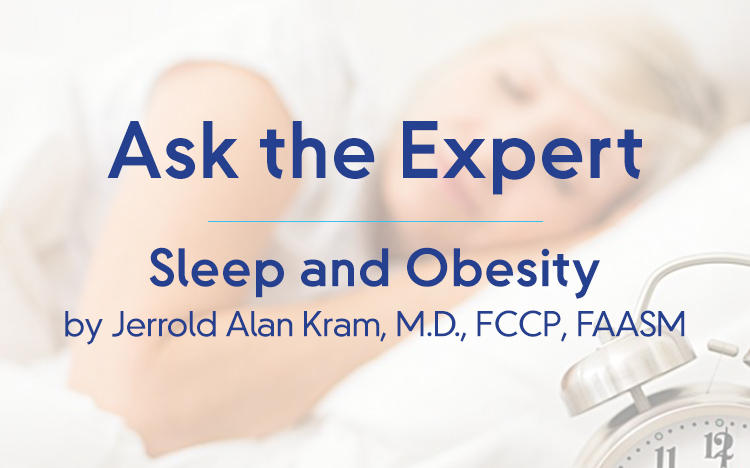Q: Is there a connection between sleep and weight control?
Most of us recognize that sleep is of some importance, though there is still a large group of people who think, like Edison, that it is a waste of time, or Margaret Thatcher, that it is for wimps. However, we need to realize that if we live to age 90, which is more and more common, we will sleep a bit over 30 years. So, if you think that 30 years of your life is important, you need to understand some things about sleep.
Sleep is complex. We will not delve into sleep science today other than to discuss its importance to overall health, but specifically its link to obesity. Today, we are finally recognizing that, while we always knew that weight control is linked to diet and exercise, the third leg of the support for good health and weight control is sleep. And now that over 30 percent of America is overweight with a growing epidemic of childhood obesity, we must address all the things leading to it.
Lack of sleep has direct effects on the control of our appetites. We produce hormones that help regulate our dietary intake. Leptin is a hormone that is naturally produced and tends to suppress hunger and eating while ghrelin does the opposite. What has become clear is that short sleep times, or markedly fragmented sleep, leads to a decrease in leptin and increase ghrelin. So, while we are awake watching TV or on our notebooks or phones we are likely to have urges to snack. And few snacks turn out to be good for us.
What is short sleep? For most people, we really do need seven to nine hours of sleep. Much of America, particularly teenagers, are getting between one and three hours less than what we need – and we delude ourselves into believing we are fine because we get used to being chronically tired. That is our normal. If you are getting good sleep, you should be able to awaken without an alarm and feel well rested. There may be a slight dip in alertness in the afternoon, but it should not be overwhelming.
Weight gain has another, very direct, impact on sleep. It is a major contributor to developing or worsening a condition called sleep apnea. This is a condition in which our throats close up and block our breathing when we sleep causing multiple awakenings through the night. And of course decreases in leptin and increases in ghrelin leading to further weight gain. Fatty tissue in our necks and tongues (yes the tongue can get fat) crowds our pharynx and makes the obstruction worse.
And it gets worse. Poor sleep from whatever cause leads to resistance to insulin. When that gets bad enough we can no longer control our blood sugar. That’s called diabetes with its myriad of health consequences.
So, sleep is not only necessary and not for wimps, it is a crucial factor in our health.
 About the Author
About the Author
Dr. Kram is the medical director of the California Center for Sleep Disorders (CCSD), and is one of the country’s most experienced sleep specialists. He began his work in the field in 1980, opened CCSD in 1983 and received his board certification in sleep medicine in 1989. Dr. Kram graduated with honors from the New York University School of Medicine and completed his internal medicine residency and pulmonary fellowship at University of California, San Francisco. He is actively engaged in programs to spread sleep expertise throughout the local medical community and is a featured speaker in professional and community lectures nationwide. Dr. Kram currently serves on the board of the National Sleep Foundation. He works with the American College of Chest Physicians and American Academy of Family Practice to develop a curriculum teaching sleep medicine to primary care physicians. Dr. Kram is also a medical advisor on Sommetrics’ advisory board.

